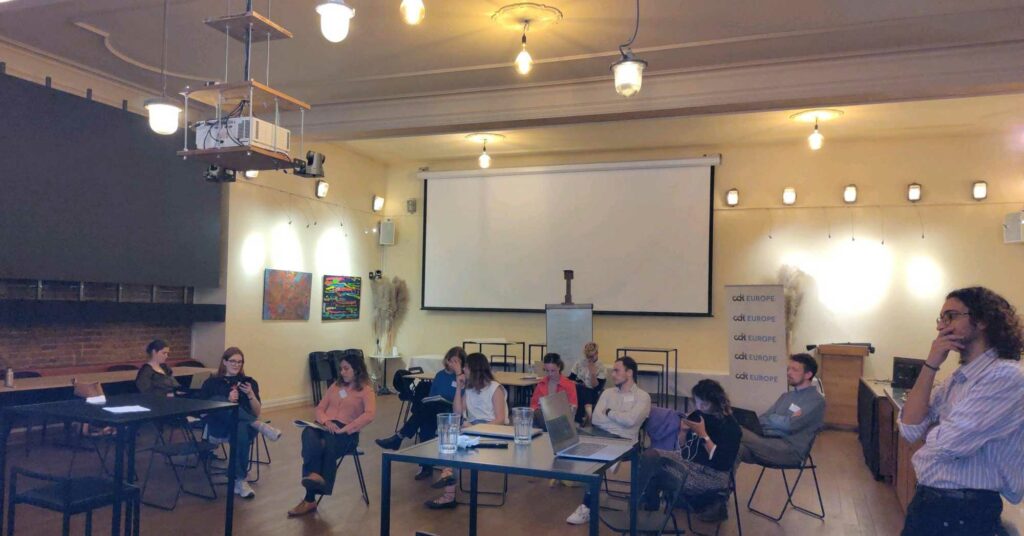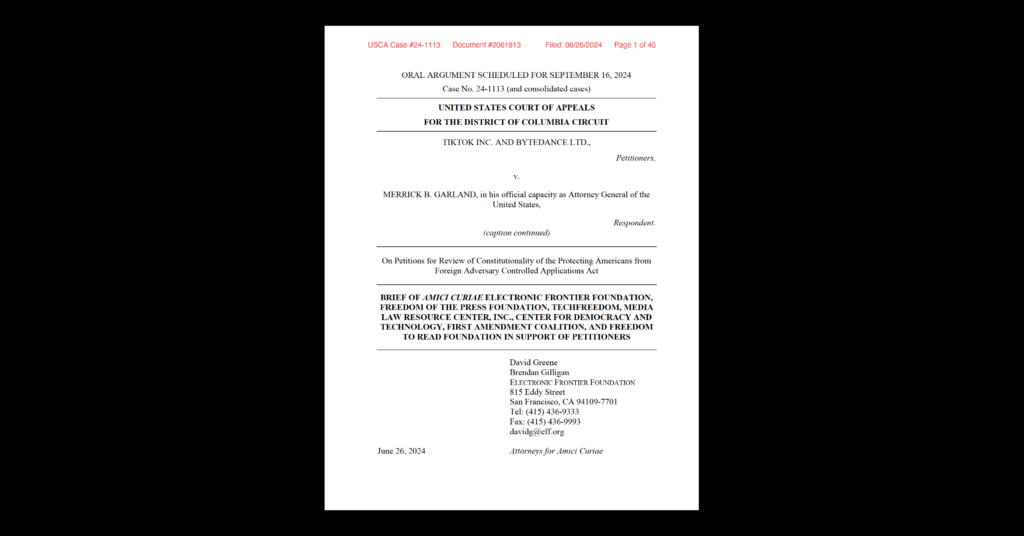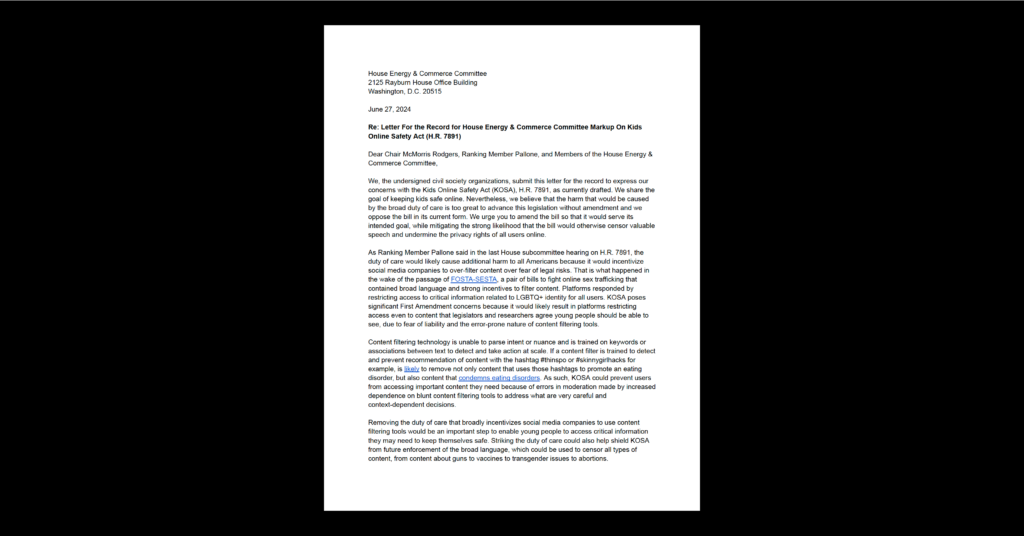European Policy, Free Expression
CDT Joins DSA Human Rights Alliance in Letter Urging European Parliament for Transparency, Accountability, and Human Rights-Centered Lawmaking
CDT Europe has co-signed a statement of the Digital Services Act Human Rights Alliance, an alliance of 12 civil society organizations from around the globe, in support of their quest for transparency, accountability, and human rights-centered lawmaking in the context of the latest amendments to the draft regulation for the Digital Services Act (DSA) currently being negotiated in the European Parliament.
In the letter, organisations call on the EU, as a global trendsetter in Internet legislation with the ability to set a positive global example in lawmaking, to embrace a human rights framework within the DSA in order to address the most pressing challenges of the Internet ecosystem, whilst ensuring to protect vulnerable groups or marginalized communities, both within the EU and around the world. In particular, the alliance calls on EU co-legislators to:
- Avoid disproportionate demands on smaller providers that would put users’ access to information in serious jeopardy.
- Reject legally mandated strict and short time frames for content removals that will lead to removals of legitimate speech and opinion, impinging rights to freedom of expression.
- Reject mandatory reporting obligations to Law Enforcement Agencies (LEAs), especially without appropriate safeguards and transparency requirements.
- Prevent public authorities, including LEAs, from becoming trusted flaggers and subject conditions for becoming trusted flaggers to regular reviews and proper public oversight.
- Consider mandatory human rights impact assessments as the primary mechanism for examining and mitigating systemic risks stemming from platforms’ operations.
An extract of the letter can be found below. For the full letter + list of signatories, read more here.
***
The European Union Should Set a High Bar To Protect Fundamental Rights
The impacts of Internet legislation are rarely contained by borders, and that is particularly true when that legislation comes from influential bodies like the European Union. The “Digital Services Act Human Rights Alliance” (DSA Alliance) was formed partially in response to the ongoing and visible global impact of EU Internet legislation. To date, the EU has been a leader in Internet legislation, for better and, unfortunately, sometimes for worse, and the Digital Services Act is no different. The DSA Alliance believes that by focusing on the protection of fundamental rights globally, the DSA is an opportunity for the European Union to provide a positive global example in lawmaking. Without such focus on the most pressing challenges for users across the world, there is a risk that the DSA will spawn copycats throughout the world, which could export negative elements to other countries, as we have seen with the German NetzDG. The NetzDG has been criticized even in Germany—for example, a recent study showed the regulation isn’t helping remove problematic speech, but is potentially leading to overblocking. Yet countries that offer far less protection for free expression continue to point to NetzDG as inspiration for new laws.
The DSA’s Global Scope
We worry about the standards that the DSA regulation is setting. Although these standards will influence platforms’ operations far beyond the Union, no attempt has been made by the EU Commission to consider the needs of—and risks to—vulnerable groups or marginalized communities around the world.


